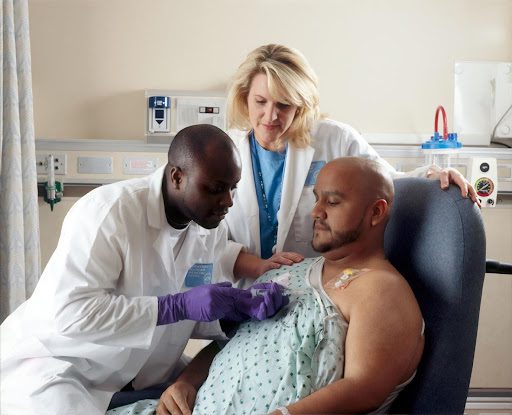Medical negligence cases are a staple of the UK health sector, costing the NHS billions of pounds every year. For a deep dive into these costs, read on…
Medical negligence cases are a massive problem for the NHS. This is because, not only are patients receiving negligent care, the NHS is losing money that could be spent on that care, further perpetuating the issue.
Medical negligence cases are a massive problem for the NHS. This is because, not only are patients receiving negligent care, the NHS is losing money that could be spent on that care, further perpetuating the issue.
However, there are 3-year time limits for negligence claims, which allows the NHS to keep numbers down somewhat and predict how many claims they expect to receive in the future.
The question is, how many claims does the NHS receive, how much does it cost them, and what are the financial implications of medical negligence on the NHS? To discover the answers to these questions, read on…
How Much Does the NHS Spend on Medical Negligence?
In 2018-19, the NHS paid £2.4 billion in medical negligence claims, according to the NHS Resolution. This equates to about 2 percent of their total budget, which doesn’t sound like much, but it doesn’t provide the full picture.
NHS Resolution, an arm of the Department of Health that resolves concerns and disputes, has to account for negligence claims that are likely to take place in the future. This brought the actual yearly spend on medical negligence in 2018-19 to £83.4 billion.
This is the most substantial public sector financial liability other than nuclear decommissioning, which cost the government £131 billion in 2018-19.
What’s more interesting is that the major contributor is only a handful of high value negligence claims related to maternity care. These accounted for 50 percent of the total figure provided by NHS Resolution in 2018-19. This is because birth injuries sustained in hospital can have catastrophic effects over a person’s lifetime, which lead to very large compensation pay-outs.
In 2020-21, NHS Resolution received 12,629 clinical negligence claims compared to 11,678 in 2019-20 – an increase of 7.5 percent, but very few have been attributed to COVID-19 related healthcare.
Claims arising from the pandemic are expected to be made in future years, as the average time lag between incident and notification of a claim is 3.6 years.
What Are the Financial Implications of This Expenditure For the NHS?
Now that we know how much money the NHS spends on medical negligence claims every year, it’s time to look at the financial implications.
Less money to spend on care
he most obvious implication is that, with more money being spent on medical negligence claims, the less there is to spend on primary care. Of course, the patients who are harmed by negligent treatment are the most important, but the affect spans much wider.
NHS spending on medical negligence is actually increasing faster than funding, tripling in the decade from 2009. This means the proportion of resources going to care is worsening over time, and will continue unless the issue is rectified.
The irony is that the less money spent on care, the more negligence cases there will be. With COVID-19 related claims expected to pick up in the future, the quality of primary care could get much worse very quickly.
Stresses out medical staff and encourages mistakes
Every instance of avoidable patient harm not only hurts the patient, but also causes distress to healthcare staff and organisations.
In an MPS survey conducted in 2017, it was found that 88 percent of healthcare professionals were increasingly fearful of being sued, with 72 percent saying the fear had caused them extreme stress or anxiety. This resulted in more defensive behaviour and over testing in patients to make sure they got the correct diagnosis.
This defensiveness, and over testing of patients, could lead to more cases of medical negligence as the doctors and nurses second guess themselves. The anxiety could also lead to more sick days and less nurses and doctors turning up to work.
Could result in less people working for the NHS
Speaking of not turning up to work, in the same MPS survey, 64 percent of healthcare professionals who answered the poll said the fear of being sued made them consider their future in the profession.
Staff shortages in the NHS are already an issue, with one third of GP vacancies remaining unfulfilled. The fear of litigation and the rising cost of medical negligence could exacerbate this issue, and the NHS could face a staffing crisis.
At a time where the UK, and the world, has faced its first global pandemic, medical professionals are sorely needed. A staffing crisis could be a huge issue to the health of millions of UK citizens, both from the virus and other health conditions.
Shows healthcare providers where the holes are
Despite the negative financial impact of medical negligence claims on the NHS, the one positive is that it gives a signal of where things are going wrong. With so much data around medical negligence, healthcare providers should be able to see what needs fixing.
With the data clearly showing that maternity claims make up 50 percent of the overall spend on negligence cases, the hard work should start there. There should also be data on which hospitals are more prolific in their negligence which can also be rectified.
Thankfully, organisations such as NHS Resolution and the Medical Protection Society are on the case. They have been working diligently on plans to reduce the number of negligence cases before the situation gets any more out of hand.
Are These the Only Financial Implications of Medical Negligence on the NHS?
In this post, we’ve shared data on the amount of money the NHS spends on medical negligence cases, and delved into the financial implications of those pay-outs.
The implications we’ve shared in this post are the most likely results of increased NHS spending on negligence cases, most of which will get worse if something isn’t done in the near future.
Thankfully, there are organisations analysing the available data, and coming up with plans to reduce these cases, but only time will tell if they’re successful in their efforts.
Photo credits:
Coin jar spill – Photo by Michael Longmire on Unsplash
Two doctors caring for a patient – Photo by National Cancer Institute on Unsplash Stressed out doctor – Photo by Andrea Piacquadio from Pexels
Help keep news FREE for our readers
Supporting your local community newspaper/online news outlet is crucial now more than ever. If you believe in independent journalism, then consider making a valuable contribution by making a one-time or monthly donation. We operate in rural areas where providing unbiased news can be challenging. Read More About Supporting The West Wales Chronicle

























